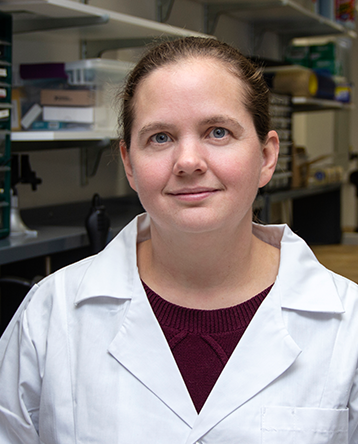Sarah Bergbreiter
Professor, Associate Head for Strategic Initiatives, Mechanical Engineering
Courtesy Appointment, Electrical and Computer Engineering
Professor, Associate Head for Strategic Initiatives, Mechanical Engineering
Courtesy Appointment, Electrical and Computer Engineering

Sarah Bergbreiter joined the Department of Mechanical Engineering at Carnegie Mellon University in the fall of 2018.
She received her B.S.E. degree in electrical engineering from Princeton University in 1999. After a short introduction to the challenges of sensor networks at a small startup company, she received the MS and Ph.D. degrees from the University of California, Berkeley in 2004 and 2007 with a focus on microrobotics. She joined the University of Maryland, College Park in 2008 as an assistant professor of mechanical engineering, with a joint appointment in the Institute for Systems Research.
She received the DARPA Young Faculty Award in 2008, the NSF CAREER Award in 2011, and the Presidential Early Career Award for Scientists and Engineers (PECASE) Award in 2013 for her research on engineering robotic systems down to sub-millimeter size scales. She also received the Best Conference Paper Award at IEEE ICRA 2010 for her work incorporating new materials into microrobotics.
2007 Ph.D., University of California, Berkeley
2004 MS, University of California, Berkeley
1999 B.S.E., Princeton University
CMU Engineering
CMU researchers use novel 3D nanofabrication techniques to miniaturize robots, thereby enabling exceptional speed, precision, and the potential for new applications in manufacturing and medicine.
Electronics360
Zippy, the world’s smallest bipedal robot created by a team led by MechE's Sarah Bergbreiter and Aaron Johnson, was featured in Electronics360 and Heise Online.
CMU Engineering
At less than 1.5 inches tall, the latest bipedal robot from Carnegie Mellon University’s College of Engineering can navigate smaller spaces than any other two-legged robot in the world.
Mechanical Engineering
New research enables enhanced production of modular microrobots built using DNA
CMU Engineering
Researchers in the Department of Mechanical Engineering at Carnegie Mellon University have created the first legged robot of its size to run, turn, push loads and climb miniature stairs.
CMU Engineering
Researchers at Carnegie Mellon University have made grasshopping robots possible by uncovering that latches can mediate energy transfer between robotic jumpers and the environment that they are jumping from.
Popular Science
MechE’s Sarah Bergbreiter spoke to Popular Science about how jumping insects inspired the mechanics of her team’s recent design, a bouncing robot that can control energy transfers between surface and device using its launch mechanism. “It’s really fascinating that the latch— something that we already need in our robots—can be used to control outputs that we couldn’t have controlled before.”
Scientific American
Recently, a world record has been broken in the field of autonomous jumping robots by researchers at the University of California, Santa Barbara using biomimicry. MechE’s Sarah Bergbreiter wrote a commentary about this event in Nature, which has been widely quoted in articles related to this event, including in Scientific American.
IEEE Spectrum
MechE’s Carmel Majidi, Sarah Bergbreiter, and Victoria Webster-Wood were featured on IEEE Spectrum, discussing softbotics.
CMU Engineering
Researchers observe the fastest organisms in nature—Dracula ants, froghoppers, and spore-ejecting fungi—to investigate spring-powered latch mechanisms for robotics.
CMU Engineering
These 3D printed circuits are self-healing, re-writable, and energy-harvesting, thanks to liquid metal.
Mechanical Engineering
Despite the coronavirus shutdown, researchers and students were creative about continuing their work and joining the fight against COVID-19.